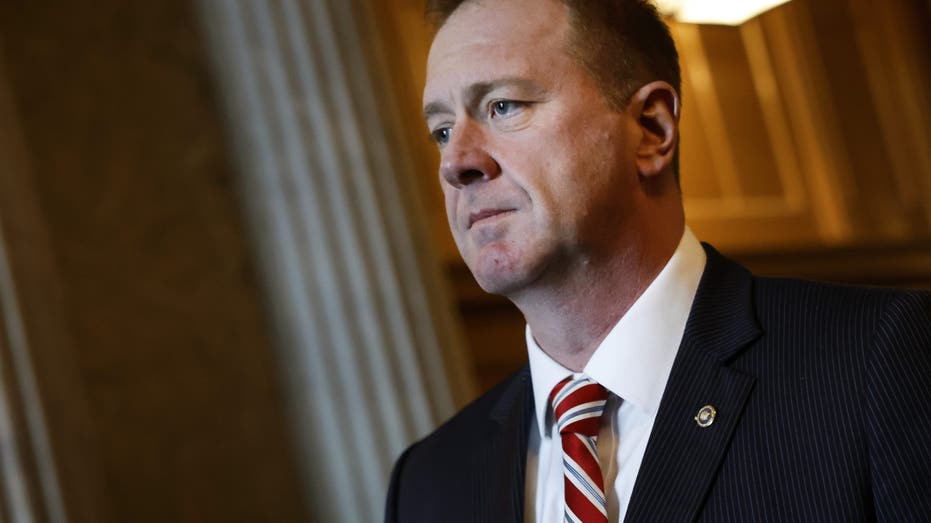

America is facing a masculinity crisis. Disillusioned men, grappling with economic stagnation, addiction, societal alienation, and diminishing prospects, are seeking answers.
Enter Scott Galloway, an articulate, successful, and self-assured commentator who has positioned himself as a voice for this growing demographic.
By creating new terms like 'aspirational masculinity,' Galloway capitalizes on the crisis rather than offering a deeper or more original understanding of it.
Raised by a single mother, Galloway is no stranger to adversity, and his rise to prominence lends credibility to his calls for resilience and self-improvement. He offers some solid advice to men: save money, cultivate a strong work ethic, find a skill or craft and dedicate yourself to it, work out, and avoid numbing yourself with pornography. All these tips are laudable and necessary, yet they’re hardly revolutionary.
This is the paradox of Galloway. His advice, while practical and important, often feels like repackaged common sense. There’s nothing inherently wrong with this; sometimes people need a reminder of the basics. But it’s the authority with which he states the obvious that allows him to slip in less palatable ideas.
Common sense as Trojan horse
Galloway’s emphasis on basic principles such as saving money or maintaining physical fitness is difficult to dispute. These are universal truths that can improve lives, particularly for young men in search of direction.
But such advice is not novel or unique to him; it’s what fathers, coaches, and mentors have been telling young men for generations. This lack of profundity does not discredit Galloway entirely, but it raises the question: Why does he attract such an audience?
The answer, I suggest, lies in his ability to use this plain-as-day foundation as a Trojan horse for smuggling in more noxious narratives.
In a recent discussion with comedian Theo Von, Galloway claimed that masculinity is a social construct, a statement that undermines the very crisis he claims to address.
Masculinity is not a construct; it is rooted in biology and evolution. Testosterone drives traits like risk-taking, competitiveness, and dominance, traits that have been essential for survival and resource acquisition for millennia.
While cultural norms influence the way masculinity is expressed, the underlying biological framework is undeniable. Across cultures, men have been leaders, protectors, and providers not because society arbitrarily decided so but because these traits were adaptive.
The narrative of masculinity as a mere social construct, however, has been shaped and championed by universities. Galloway himself is a professor, a product of, and participant in, this academic culture. His vocation and its implications will be discussed in a minute, but by framing masculinity as a construct, he risks alienating the very audience he seeks to empower. Moreover, he dilutes the urgency of addressing the genuine struggles men face today.
Rage against the machine?
Galloway, a man incredibly fond of his own voice, likes to sell himself as a renegade truth-teller, someone unafraid to challenge societal narratives.
However, the 60-year-old is also an employee of NYU, a university that has for years pushed nonsensical and rather harmful narratives, including the scourge of "toxic masculinity" and the ubiquitous presence of "white privilege." In other words, Galloway is not an outsider taking on the system; he is very much a part of it.
NYU and institutions like it have unapologetically and unforgivably steamrolled over the men of America, particularly white men, for years. These universities have fostered a culture that vilifies traditional masculinity and imposes ideological conformity. All in the name of progress, of course.
Galloway’s association with such an institution casts doubt on his credibility as a champion for men, raising the uncomfortable possibility that his critiques are carefully curated to stay within the boundaries of acceptable discourse as defined by the very system he claims to critique. He’s less Jordan Peterson and more Judith Butler.
Aspirational masculinity
Galloway has recently started promoting the concept of "aspirational masculinity."
Although not as blatantly nonsensical as "toxic masculinity," it makes the same fundamental mistake. Just as there is no such thing as toxic masculinity, there is no such thing as aspirational masculinity.
We have masculinity and femininity. These are biological realities shaped by evolution. There are aspirational qualities that a man can embrace — courage, discipline, resilience — just as there are toxic traits, such as cowardice or cruelty. However, these qualities exist separately from masculinity itself.
Masculinity is not inherently good or bad; it simply is. Attempting to redefine it with qualifiers like "aspirational" or "toxic" muddles the conversation and risks further alienating the very men Galloway claims to help.
As a professor of marketing, Galloway is clever, and one might assume he is using the term "aspirational masculinity" as a savvy branding tool to promote his upcoming book on the topic, which he recently revealed in the interview with Von.
This is where his critique becomes more of a commercial pitch. By creating new terms like "aspirational masculinity," Galloway capitalizes on the crisis rather than offering a deeper or more original understanding of it.
Plant-based pandering
Another suspicious aspect of Galloway’s advice is his promotion of plant-based diets.
To be clear, this is not to suggest that true masculinity requires eating five chickens and three cows every day. However, a good diet is the cornerstone of good health, and without good health, no man — or human — can aspire to become their best self.
Plant-based diets that completely exclude meat-based proteins are dangerous and destructive to one’s health. A man surviving on avocado toast and lentil soup isn’t the guy to call when the proverbial s**t hits the fan. Meat provides essential nutrients, including high-quality protein, iron, zinc, and vitamin B12, that are difficult — if not impossible — to replicate with plant-based alternatives.
While moderation and balance are important, Galloway’s promotion of such dietary ideologies seems more aligned with trendy health movements than with the pragmatic advice he claims to offer.
The need for better role models
Galloway’s willingness to insert feminist-friendly narratives, emphasize LGBTQ issues, promote plant-based eating, and invent new terms like "aspirational masculinity" creates a contradictory and, at times, incoherent message.
Why should straight men, already struggling with disillusionment and isolation, turn to movements and ideologies that often marginalize or vilify traditional masculinity? The inclusion of these talking points feels more like a strategic attempt to avoid controversy than a genuine engagement with the issues at hand.
Masculinity’s crisis cannot be resolved by diminishing its biological foundation or by conflating it with ideologies that often run counter to the traditional male experience. Men do not need more guilt or a forced adoption of narratives that ignore their lived realities; they need role models who celebrate their strengths and offer practical solutions without undermining their identity.
True role models would reject the notion that masculinity is a social construct and instead celebrate the biological and evolutionary traits that have shaped men for centuries. They would focus on fostering purpose, resilience, and accountability without veering into unnecessary ideological territory.
Galloway’s upcoming book on the masculinity crisis may offer insightful insights, but I have my doubts. Unless he clears up his meandering messages, it won’t land with the men for whom he claims to speak.
Sure, it’ll probably get glowing reviews from CNN, where he’s a regular guest, and the New York Times, a publication that’s made no secret of its disdain for the average American man.
And that’s the real issue. Galloway acts like he’s talking to the men of America, but he’s really preaching to the same machine he’s part of — the one that’s been grinding masculinity into the dirt for far too long.
.png)
 18 hours ago
2
18 hours ago
2















 English (US)
English (US)